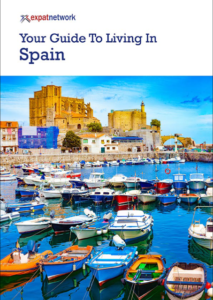Buying Property In Spain

Step one is to get your professionals lined up and ready. That should certainly include a lawyer who is independent of the estate agent or developer whose property you are viewing, who is qualified and who is a specialist in property in Spain and land law, known as urbanismo.
By Christopher Nye
It is also sensible to have made enquiries about a surveyor in your chosen area, and it could save you money if you have a currency specialist lined up too. All of these can be found via online property listings sites or in the pages of overseas property magazines. Or on this website!
When you have found the property you like, the first thing an agent will ask you to do is to sign a reservation agreement to take the property off the market at the price agreed. You will normally pay at least €3,000 but it could be as high as €10,000 or more, depending on the price of the property.
The agreement will normally last for 30 days, with the money held in an escrow account, by the agent or by lawyers appointed by the agent. You need to run this past your lawyer first and be sure. Sometimes the deposit will be returnable if you pull out at this stage, but sometimes it won’t; it depends on the terms.
Over the next couple of weeks from signing the reservation agreement two things should happen:
– Your lawyer will be conducting searches to ensure that the seller has the right to sell, that there are no debts on the property and that it has planning permission.
– You will, if you haven’t already, be getting your NIE (national Insurance number), a very straightforward process that your estate agent will usually help you with. You need this to buy the house and if there are two of you named in the sale you will both need one.
The agent will then ask you to sign the contrato de arras, the full private purchase contract. This is a binding contract and requires between 10 and 20% of the purchase price to be paid. If the buyer pulls out they lose their deposit. If the seller pulls out they must pay double the amount by way of compensation.
At this point the Public Notary (Notario) gets involved. Notaries are not lawyers, they are civil servants overseeing the transfer. Both seller and buyer, or their representatives, go to the notary’s office and sign the Escritura de Compraventa which formally completes the purchase when the final payment is made and all relevant taxes paid.
The only other process is final registration of the title deed but that can take some time after the buyer has moved in.
Total buying costs will be in the region of 8% to 14% of the purchase price, which includes a transfer tax of up to 10%. For new build property the buyer must also pay VAT of 10%.
Please note: Buying property is a complicated business of which this is only a brief introductory guide. It is strongly advisable to get specialist legal advice.
Christopher Nye writes about international property and investment. He can be reached at christophernye@icloud.com.

